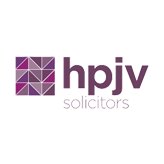Best Conveyancing Lawyers in Newport
Share your needs with us, get contacted by law firms.
Free. Takes 2 min.
Free Guide to Hiring a Real Estate Lawyer
List of the best lawyers in Newport, United Kingdom
About Conveyancing Law in Newport, United Kingdom
Conveyancing is the legal process of transferring property ownership from one person or entity to another. In Newport, United Kingdom, as with the rest of England and Wales, conveyancing is a crucial step in buying, selling, or mortgaging residential or commercial property. The process involves various legal and administrative tasks, including reviewing contracts, conducting local searches, handling land registry documentation, and ensuring all legal requirements are met. Conveyancing law helps to protect both the buyer and the seller by making sure that the property transfer is genuine, transparent, and free of undisclosed issues or liabilities.
Why You May Need a Lawyer
There are several common situations in Newport where seeking the assistance of a conveyancing lawyer is advisable:
- Selling, buying, or remortgaging a property
- Purchasing a property for the first time
- Managing the transfer of property as part of inheritance proceedings
- Buying a home through government schemes such as Help to Buy or Shared Ownership
- Dividing or transferring property ownership between family members or in divorce settlements
- Addressing leasehold vs. freehold issues
- Dealing with complex transactions, such as properties with legal restrictions or disputes
A qualified conveyancing solicitor can help you understand your rights and obligations, avoid costly mistakes, and ensure the transaction proceeds smoothly.
Local Laws Overview
In Newport, property transactions are subject to national laws that govern conveyancing in England and Wales. However, local factors and regulations can also come into play. Some key aspects that are particularly important for Newport include:
- Local Authority Searches: These searches reveal planning issues, building regulation approvals, and potential restrictions like conservation areas or listed buildings specific to the Newport City Council area.
- Lands Tribunal and Land Registry: All property transactions must be registered with HM Land Registry, ensuring a clear legal title.
- Stamp Duty Land Tax: Buyers are required to pay stamp duty when purchasing property above a certain value threshold, including specific rates relevant to Wales.
- Flood Risks: Some properties in Newport may be in flood-prone areas - local searches will identify these risks.
- Leasehold and Freehold Properties: Understanding differences between these ownership structures is vital, especially in areas with flats or shared spaces.
Conveyancers must keep up with local regulations and requirements to ensure a thorough, compliant process.
Frequently Asked Questions
What does a conveyancing solicitor do?
A conveyancing solicitor manages all legal aspects of buying, selling, or remortgaging property. This includes handling contracts, conducting searches, liaising with lenders, and registering the new ownership with the Land Registry.
How long does the conveyancing process take in Newport?
The process typically takes between 8 to 12 weeks, but this can vary based on the complexity of the transaction, the length of the property chain, and whether issues arise during searches or surveys.
What are local searches, and are they required?
Local searches investigate any issues affecting the property, such as planning permissions, building regulations compliance, flood risks, and any legal restrictions. They are usually required by mortgage lenders and strongly recommended for all buyers.
How much does conveyancing cost?
Fees will vary depending on the solicitor and complexity of the transaction, but typically include solicitor fees, local authority search fees, Land Registry fees, and stamp duty (if applicable). It is wise to obtain a detailed quote before proceeding.
What is Stamp Duty Land Tax?
Stamp Duty Land Tax is a tax paid by buyers on properties above a certain price threshold. The rates and thresholds can change and may differ for first-time buyers or those purchasing additional properties.
Can I do my own conveyancing without a lawyer?
While it is legally possible to handle your own conveyancing, it is not recommended due to the complexity, legal risks, and potential for costly mistakes. Most mortgage lenders will insist on professional legal representation.
What happens on completion day?
On completion day, funds are transferred, and ownership officially changes hands. The buyer receives the keys, and the solicitor ensures the final paperwork is registered with the Land Registry.
What are disbursements in conveyancing?
Disbursements are costs paid to third parties by your solicitor on your behalf. They commonly include fees for searches, Land Registry, and transaction taxes.
What is the difference between leasehold and freehold?
Freehold means you own the property and land outright. Leasehold means you own the property for a set number of years but not the land it stands on, and you may have additional obligations or ground rent payments.
How do I choose a conveyancing solicitor in Newport?
Look for solicitors or conveyancers regulated by the Solicitors Regulation Authority or the Council for Licensed Conveyancers. Choose someone with local experience, good client feedback, and transparent pricing.
Additional Resources
If you need more information or help regarding conveyancing in Newport, consider the following resources:
- Newport City Council: For local planning and property searches.
- HM Land Registry: For information on property titles and registration.
- Solicitors Regulation Authority: To confirm if your solicitor is registered and regulated.
- Citizens Advice: For general advice on buying, selling, or transferring property.
- The Law Society: For finding solicitors with expertise in conveyancing law.
- Council for Licensed Conveyancers: The regulatory body for licensed conveyancers.
Next Steps
If you are considering a property transaction in Newport, the next steps are:
- Gather all relevant information about the property, including title documents and details of any mortgage arrangements.
- Identify local conveyancing solicitors or firms with good reputations and request detailed quotes for their services.
- Check that your chosen professional is properly regulated by the Solicitors Regulation Authority or Council for Licensed Conveyancers.
- Once instructed, work closely with your solicitor throughout the process, providing all requested information and responding promptly to any queries.
- If you encounter problems or are unsure of your rights, use local resources such as Citizens Advice or consult with another legal professional for a second opinion.
With careful preparation and the right legal support, your conveyancing process in Newport can be smooth and successful.
Lawzana helps you find the best lawyers and law firms in Newport through a curated and pre-screened list of qualified legal professionals. Our platform offers rankings and detailed profiles of attorneys and law firms, allowing you to compare based on practice areas, including Conveyancing, experience, and client feedback.
Each profile includes a description of the firm's areas of practice, client reviews, team members and partners, year of establishment, spoken languages, office locations, contact information, social media presence, and any published articles or resources. Most firms on our platform speak English and are experienced in both local and international legal matters.
Get a quote from top-rated law firms in Newport, United Kingdom — quickly, securely, and without unnecessary hassle.
Disclaimer:
The information provided on this page is for general informational purposes only and does not constitute legal advice. While we strive to ensure the accuracy and relevance of the content, legal information may change over time, and interpretations of the law can vary. You should always consult with a qualified legal professional for advice specific to your situation.
We disclaim all liability for actions taken or not taken based on the content of this page. If you believe any information is incorrect or outdated, please contact us, and we will review and update it where appropriate.










